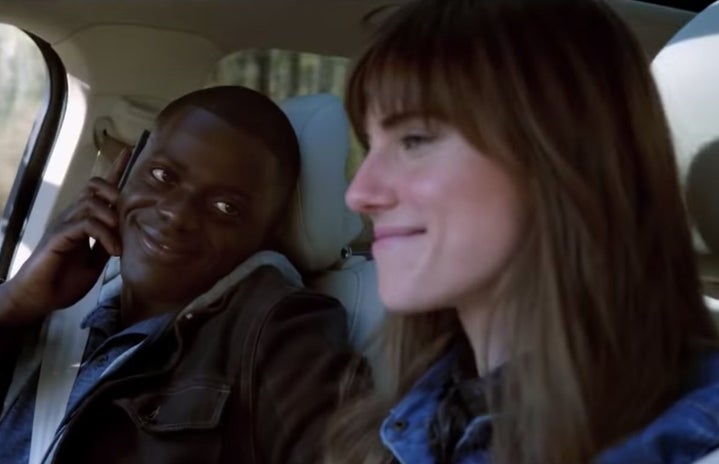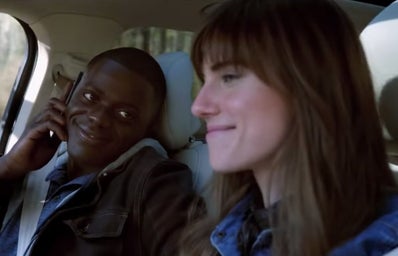Disclaimer: spoilers for both films ahead.
The Brain Behind The Whole Operation
Jordan Haworth Peele is an American actor, filmmaker, and comedian, active from 2002 to the present day. Peele’s first role was as a cast member on Mad TV, a Fox sketch comedy series. He was also on the Comedy Central sketch series Key & Peele from 2012-2015. Over the years, Peele has continued to add to his acting credits and has since delved into the realm of filmmaking. The movie Get Out (2017) was Peele’s debut in directing, and it was met with overwhelming success. From this film alone, Peele was nominated for Best Picture and Best Director and awarded the Academy Award for Best Original Screenplay. His next film Us (2019) was also very successful, catching the attention and admiration of many fans of the horror genre. Peele was included on the annual Time 100 list of the most influential people in the world in 2017.
So? They were good movies. What makes them the scariest?
I have seen my fair share of horror movies and thrillers, titles ranging from films like Stanley Kubrik’s The Shining (1980) or James Wan’s The Conjuring (2013) to Wes Craven’s Scream franchise (1996) or Leigh Whannell’s film The Invisible Man (2020). Among these infamous titles, all of which I love, the horror films of Jordan Peele have always stood out to me. Unlike many other films, his works take advantage of the audience’s search for evil in horror films and reflect it on them. Jordan Peele’s horror films have raised the standards of such films from chilling stories to eye-opening reflections of our own society’s issues and problems. The problems of our world are ultimately discussed, causing the audience to come to the startling conclusion that the darkness within us is scarier than the terrors witnessed on the screen.
Get Out represents the silent majority
Peele introduced these concepts in Get Out within the first scenes of the film. The movie follows a young Black man by the name of Chris Washington who is going to meet the parents of Rose, his white girlfriend, for the first time. In a conversation between Chris and Rose, the audience is told that Rose’s parents are not aware that Chris is Black, but she assures him that they are not racist. The two head off to Upstate New York where Rose’s parents live, but not before Chris is discriminated against by a police officer that stops him and Rose on the road. The audience very quickly picks up on the theme of racism, and its central place in the story. Peele sets up these concepts early on, setting the tone for what is to come.
As Chris and Rose arrive at the parent’s estate, Peele sets the stage masterfully. He subverts the audience’s expectations by refusing to deliver the outwardly racist reactions of the parents to Chris’ race. Instead, Peele allows for a display of today’s internalized and careful racism, manifesting in the insensitive comments and pointed analysis of the parents towards Chris. From here the movie fully delves into the horror aspects the audience has been expecting, but Peele expands them to represent much more. Chris discovers the true nature of Rose and her family. They are kidnapping Black people and using their bodies to house the spirits, brains, and souls of white people. In a haunting and visually alarming silent auction, the audience sees Chris’s body being auctioned off to the highest bidder.
This concept is a deeply powerful one because through this Peele is commenting on the way racism has evolved in our society. Outward and blatant racism still remains, but Peele has alluded to society’s selective appreciation and dominating abuse of Black people. In the scene where Chris first meets Rose’s parents, the insensitive comments represent how racism has become more subtle and internalized. Oftentimes people who swear they are not racist contradict themselves with internalized racism that they play off as “jokes.” When the pieces of the puzzle are connected to the audience, we are told that the people at the auction all admire Black people for different reasons. Black figures and notable Black accomplishments are mentioned by all the white attendees at the party, expressing their selective appreciation of the race, defined by its so-called “greatest members.” For this reason, they have endeavored to inhabit their bodies, a rather terrifying nod to how mainstream society often cherry-picks aspects of black culture and black excellence, accepting what serves them and discarding or disrespecting what does not. In addition to this, the use of literal Black bodies serves as a symbol of the exploitation of Black bodies and Black labor in both the past and present. In a singular movie, Peele has not only incorporated the chilling supernatural occurrence of possession and inhabiting another’s body but has also shone a light on the tendencies of white culture in disguising racism and celebrating Black culture and people when convenient.
Us questions ‘what is villainy?’
Peele’s popular film Us is a continuation of this uncomfortable self-awareness that is intentionally imposed on the audience. The story follows Adelaide and her family on their visit to the beach house that she grew up in. What begins as a seemingly wholesome family outing soon becomes a horrifying struggle for their lives as they are attacked by a family that looks exactly like them. The movie’s big reveal is that the Adelaide we are introduced to as the “original” is actually the doppelganger that took the real Adelaide’s place when she was a child. It is in this shocking twist that Peele’s true message lies. The tethered (doppelgangers) are the villains of the film, but they share the same faces as our main characters. This is Peele’s rather direct statement that pointing a finger at the villain is not an option, the villains are us.
This is how Peele manifests his commentary on our world. Human beings have an intense and sometimes irrational fear of the Other. In “Us”, Peele shows us that the Other is oftentimes more similar to us than we think. In the final scene where the twist is revealed, we find out just how many layers of social commentary Peele has expertly woven into the film. Firstly, the switch between the real Adelaide and the tethered Adelaide shocks the audience into realizing that the Adelaide we have been rooting for the whole time is possibly the wrong one. The severity of this deception stirs up many questions. What constitutes a human? The seamless integration of Adelaide’s tethered counterpart into the outside world begs the question, aren’t they human too? Is it nature or nurture that defines a human being in the end?
More of Peele’s commentary lies in the origin story of the tethered. It is revealed in the final scene that the tethered, or the doppelgangers of the people on the surface, were created in an effort to control those above. This deep-seated corruption is a dramatized reflection of the ways in which our society and government strive to control us. Peele furthers this as tethered Adelaide describes how the project was abandoned, and how the tethered were left alone and neglected underground, discarded like trash. Thought to be shells without a soul, they were forced to live under terrible living conditions and under inhumane circumstances, while the people on the surface are none the wiser. This ignorance parallels the rose-colored glasses of the wealthy and privileged in our society. They regard the underprivileged as so far from them that they refuse to accept that under different circumstances, that could be them. Peele attacks the disconnect that people feel from evil, and the ease with which they point fingers. He asks the difficult question, what if the evil is us? Peele plants these uncomfortable realizations into the viewer’s heads.
I’ve always loved movies that made me think, and Peele’s movies undeniably achieved that. While they don’t fit in with traditional horror films, their lingering effects are powerful. By getting the audience to question their own world, and the darkness within them, Peele has achieved true horror and induced pure fear. After all, no ghost or ghoul could be scarier than ourselves.


